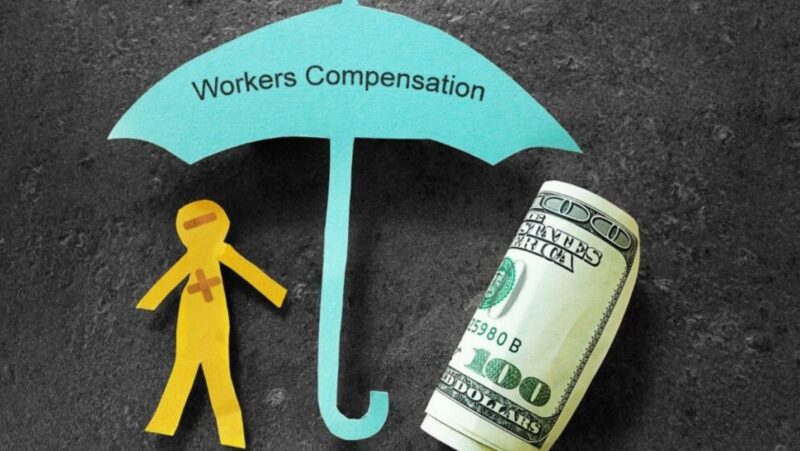
When it comes to securing a fair deal on a car finance agreement, you should expect transparency and fairness. However, for many consumers, this is not always the reality. Mis-sold car finance agreements are unfortunately more common than we’d like to admit. If you suspect that you’ve been mis-sold a car finance deal, gathering the right evidence is crucial to building a strong case for a successful claim.
Mis-selling can occur in various ways, from hidden charges and unfair interest rates to agreements that weren’t suitable for your financial situation. If you’ve fallen victim to car finance mis-selling, you have the right to make a claim for compensation or to have the deal rectified. In this article, we will guide you through the process of gathering the necessary evidence to back up your mis-sold car finance claim.
Why Evidence Matters in Mis-Sold Car Finance Claims
Evidence is the cornerstone of any claim, especially when dealing with mis-sold car finance. Financial institutions and dealerships often challenge claims, so it’s essential to gather all the necessary documentation and correspondence. Without strong evidence, your claim may not be taken seriously or accepted.
Having a thorough record of all aspects of your car finance deal—including your agreement, communication, and financial situation—will make your case much more robust. The stronger the evidence, the higher the likelihood of a successful outcome in your mis-sold car finance claims.
Step-by-Step Guide to Gathering Evidence for Your Mis-Sold Car Finance Claim
1. Examine Your Car Finance Agreement
Your finance agreement is the primary piece of evidence when making a mis-sold car finance claim.

It will outline all the key terms, including the amount borrowed, the interest rate, the length of the agreement, and your monthly payments. Start by thoroughly reviewing your car finance contract for the following:
● Interest rates (APR): Did the interest rate align with what was initially presented to you? If it seems higher than expected or not in line with market rates, this could be a red flag.
● Fees: Were any hidden or unexpected fees included in the agreement? Finance providers must clearly disclose all charges at the time of signing.
● Total repayment amount: Did you understand the total amount you would be required to pay over the life of the agreement? Often, consumers are mis-sold car finance due to unclear terms surrounding the total cost of the agreement.
● Length of the agreement: Is the loan term in line with what was promised? If the term is longer than what you were told, it could be indicative of mis-selling.
Make sure you have a copy of the original agreement, including any amendments, as this will form the basis of your claim.
If you did not receive a copy when signing, request one from your finance provider.
2. Collect Correspondence and Communication Records
In addition to your finance agreement, any correspondence related to your car finance deal can serve as crucial evidence. This includes emails, phone call recordings (if available), and any written communication from the dealership or finance provider.
Some things to look for:
● Marketing materials: Did the advertisement or promotional materials promise better terms than what you received? Were you told that the deal was “affordable” when it wasn’t?
● Emails or letters: Review any emails or letters that you received during the sales process. Pay particular attention to anything that may be misleading or unclear.
● Call recordings: If you have any phone call recordings from conversations with the finance provider or dealership, these can be powerful pieces of evidence.
It’s important to keep a record of all communications, even if they seem insignificant. If a particular statement misled you or was not fully explained, it could play a key role in your claim.
3. Assess Your Financial Situation at the Time of Sale
A common issue in car finance mis-selling is the affordability of the deal. Finance providers must conduct a thorough affordability check before offering you a car finance agreement. If the agreement was unaffordable based on your financial situation, it may have been mis-sold.
You should gather:
● Proof of income: Bank statements or pay slips from the time you signed the agreement can demonstrate your financial capacity to make the monthly payments.
● Expenditure records: Any documentation that outlines your existing financial commitments (e.g., loans, mortgages, credit cards) will show if the car finance deal was affordable.
● Credit report: A copy of your credit report will help you establish whether the finance provider properly assessed your creditworthiness before offering you the agreement.
If you were offered a finance deal that you could not afford based on your income and existing financial commitments, this is a strong indication that the deal may have been mis-sold.
4. Identify Any Misleading Information or Misrepresentation
One of the main components of a mis-sold car finance claim is the failure to provide clear and accurate information about the terms of the deal. If the sales process involved misleading statements or misrepresentation, this could form the basis of your claim.
Here are some examples of misleading information:
● Inadequate explanations: Were the terms of the agreement clearly explained to you? If you were left with any confusion or doubts about the deal, this could indicate mis-selling.
● Misleading promises: Did the dealership or finance provider promise you a deal that was “too good to be true” or made assurances about low payments without explaining the hidden costs?
● Incorrect advice: Were you advised to take out a finance deal that wasn’t suitable for your circumstances, or were you pressured into making a decision quickly?
If you feel you were misled or if any of the information you were given turned out to be inaccurate, this can significantly strengthen your mis-sold car finance claim.
5. Look for Unclear or Unexplained Terms
Mis-sold car finance agreements often contain terms that are either overly complex or not properly explained.

If your agreement contains unclear terms that you were not fully aware of when signing, this could indicate mis-selling.
Check for:
● Complex terms: If the terms of your agreement were written in complex language that was hard to understand, you may not have been fully informed.
● Unexplained additional costs: Were there add-ons such as warranties, insurance, or other products that you didn’t fully understand or didn’t need? If you were sold unnecessary products without proper explanation, this could be part of the mis-selling.
The finance provider is obligated to ensure that you fully understand the agreement and its terms. If you were not properly informed, you may have grounds for a claim.
6. Consult an Expert
While gathering evidence is important, it’s also wise to seek expert advice. A financial adviser, legal professional, or claims management expert can help you understand your situation, assess your chances of success, and guide you through the claims process. They can also help you identify any further evidence that might strengthen your claim.
7. Track Your Payment History
Finally, it’s essential to keep a record of all payments made toward your car finance agreement. This includes:
● Bank statements showing the payments you’ve made.
● Payment history from the finance provider which will confirm if any charges were added without your consent.
If you discover discrepancies in your payments, this could support your claim that the finance deal was mis-sold.
Conclusion
Gathering evidence is the first and most important step in successfully filing a mis-sold car finance claim. By reviewing your agreement, collecting relevant documentation, and seeking expert advice, you can build a robust case that increases your chances of success. Whether your claim is based on misrepresentation, hidden fees, or an unaffordable deal, strong evidence will help ensure that your rights are protected and that you get the compensation you deserve.
If you believe you’ve been a victim of car finance mis-selling, start gathering your evidence today and take action to resolve the issue. A well-documented case can make all the difference in achieving a fair and satisfactory outcome.










